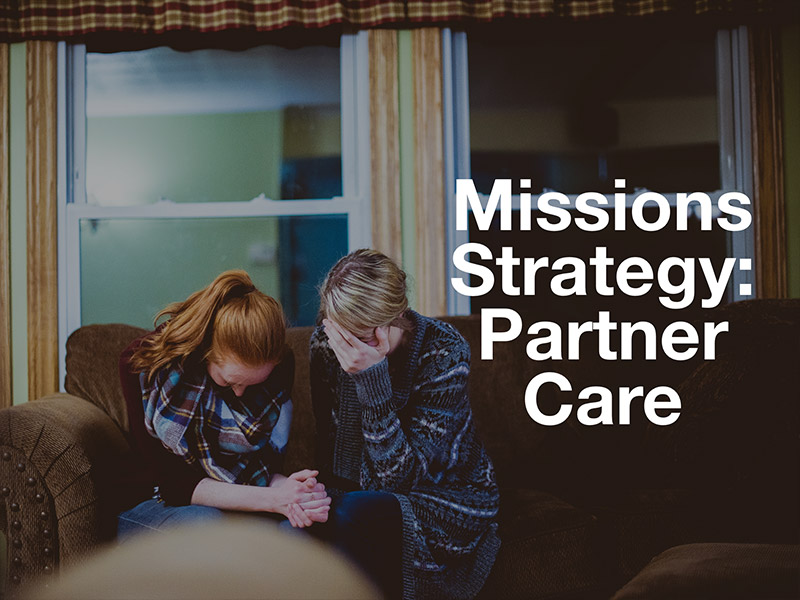Missions Strategy: Part 5 – Partner Care

Missions Partnerships are one of the best vehicles a church can use to engage fully in missions. A healthy partnership will contain five elements, and the final element is Partner Care. Ironically, this is probably one of the most important of the five elements, but by nature, it is usually the last one we engage in because it requires the deepest level of relationship. Consider the following vignettes, adapted from real situations.
The mother of a family of three children serving in an extremely hostile environment sends out a newsletter asking for prayer for their kids because they’ve “had a difficult few weeks”. The reality is that their children have suffered from night terrors and demonic dreams for the last month.
A worker is struggling with a personal relationship on their team. It’s not an issue that would require field leadership intervention, but a listening ear and a safe place to process would mean the world to them.
An IW family is headed back for Home Assignment when their housing falls through and they suddenly face the prospect of having to live in a hotel for a month or two until they can secure other options.
After a couple of years on the field, an IW couple struggles with discouragement because it feels as if their American world has passed them by. They feel out of touch with the news and cultural happenings in their home country, they worry about how their kids will navigate their dual “citizen” realities, and given the minuscule fruit they’ve seen, they wonder if the sacrifice is worth it.
When we think about Partner Care, it’s important to remember that there are three crucial players in supporting our IWs: the National Office (AM, or Alliance Missions), the District, and the local church. The AM team (represented by the national office and regional field leadership) is generally most equipped to respond immediately and can offer powerful resources to IWs such as counseling and in-person connections. The District team, who are neither their supervisors nor their major financial contributors, play a different role and bring other avenues of support to IWs. The local church, however, with its purposefully narrow focus on the IW and their team, is exceedingly well-positioned to offer consistent and stable support in a variety of arenas – including when on Home Assignment.
As a strategy, this will likely develop organically as the relationship between the church and the IW matures, but I would encourage you to be intentionally thinking about, and asking God to reveal, ways that you can care for them. Perhaps it’s being a safe place to hear hurt and frustration, a friend to pray with (or share the “real” prayer requests with), or simply someone to talk to that isn’t in their immediate world. Maybe it includes tangible support such as a vehicle on Home Assignment, providing a weekend away for their family, or remembering their children with gifts on their birthdays. However it comes about, it is a vital component of partnership and one that I would urge you not to overlook.
Over the years a compilation has emerged of ways that local churches have engaged in Partner Care with IWs. While this list is not comprehensive, and may not sync well with your context, perhaps God will use it will stir up some ideas that might fit your situation well. As always, if you want to talk further about any of this, I am available any time.
Together with you,
Chris
ctweedy@rmdcma.com or (406) 647-2764
—
